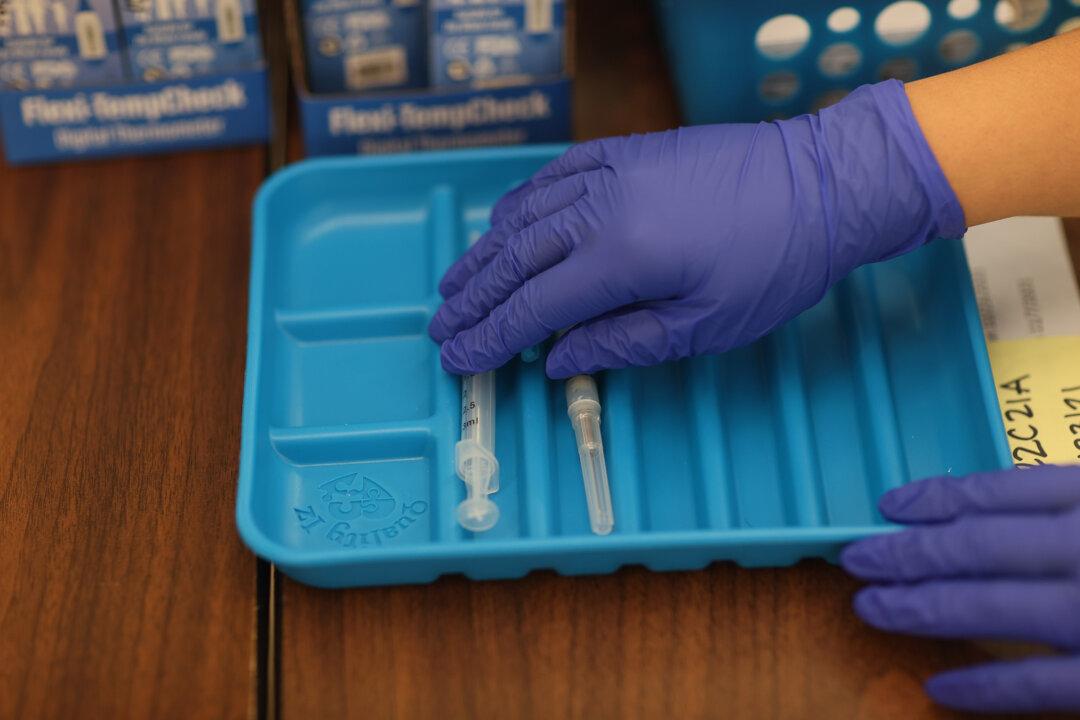The new COVID-19 vaccine boosters provide poor protection against symptomatic infection, according to a U.S. Centers for Disease Control and Prevention (CDC) study published on Nov. 22.
Absolute vaccine effectiveness was 50 percent or lower among people who received one of the new bivalents after receipt of two or more original vaccine doses, researchers with the CDC estimated.





